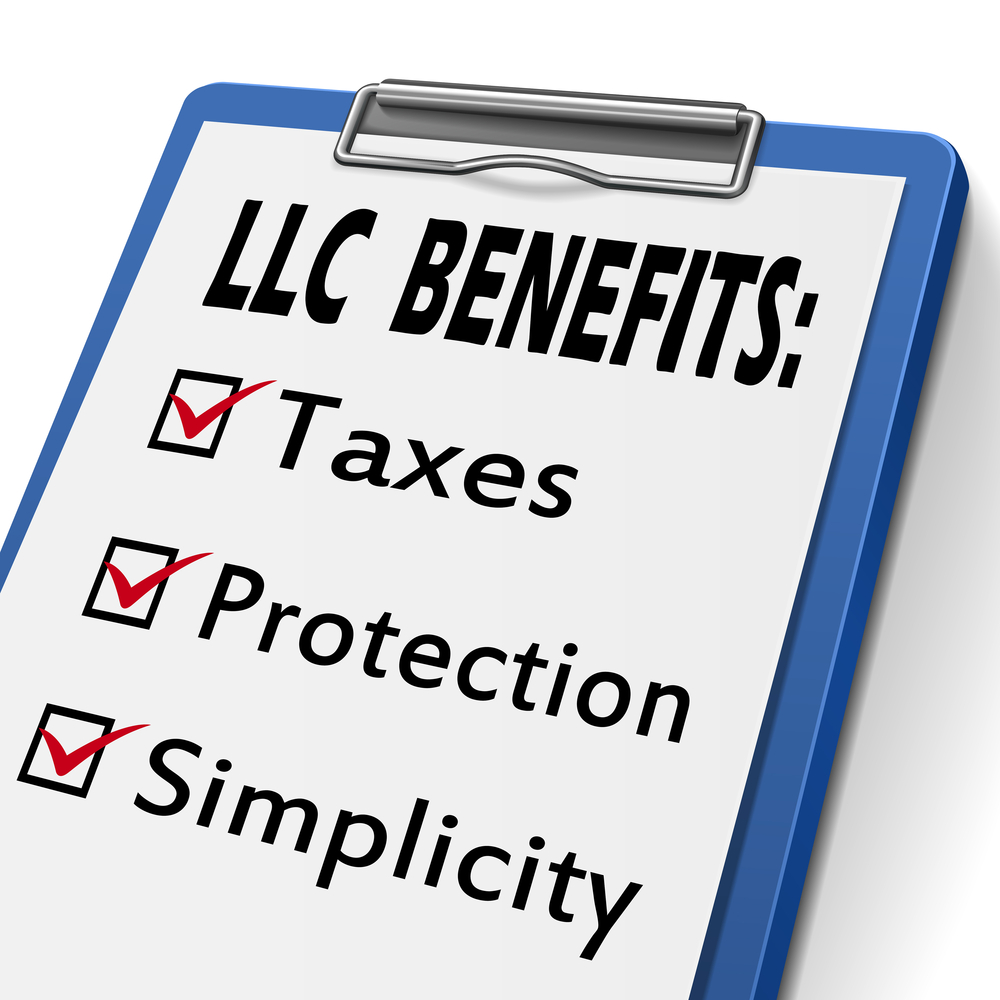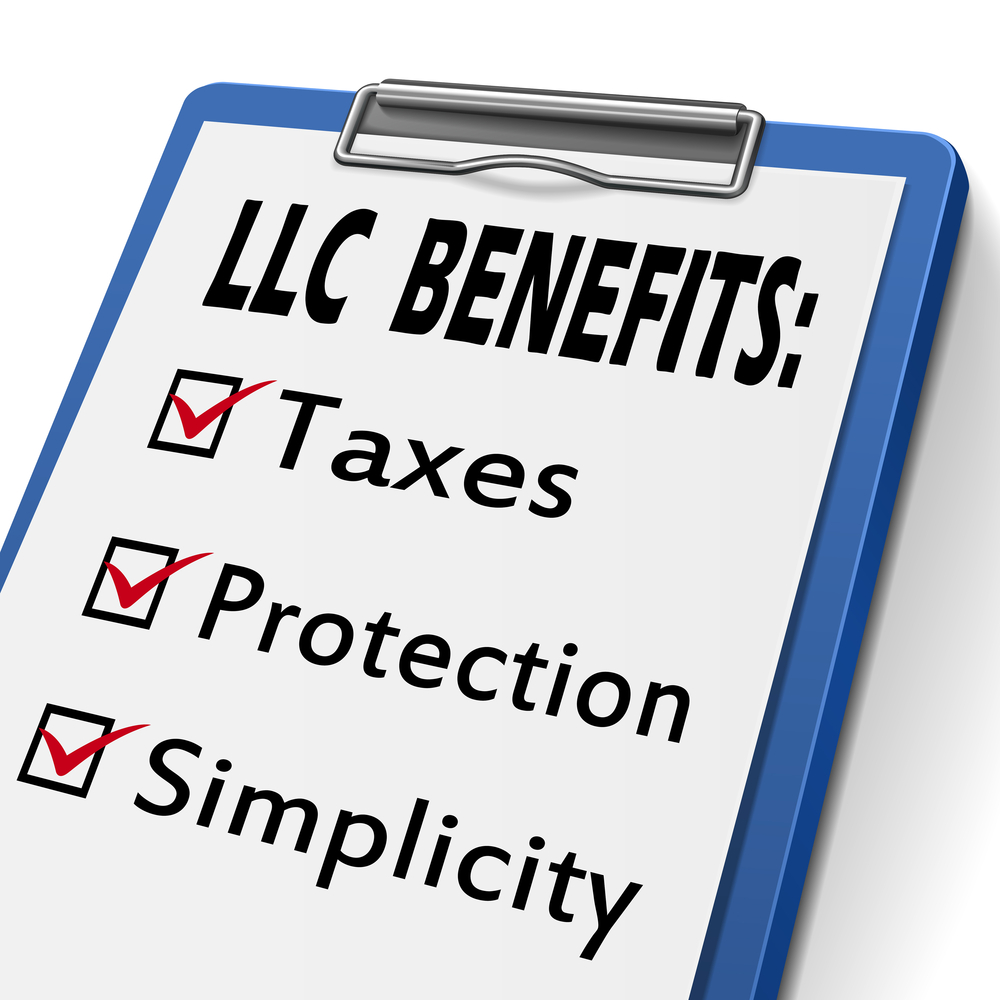
If you own a rental property in Texas, you may be wondering if it’s necessary to have an LLC. Well, the short answer is that it depends. Having an LLC for your rental property can offer numerous benefits, including liability protection and tax advantages. However, there are also costs associated with forming and maintaining an LLC. In this article, we will explore the pros and cons of having an LLC for your rental property in Texas, how to form one, the ongoing compliance requirements, and how it can impact your ability to secure financing. So, let’s dive in and find out if an LLC is the right choice for you and your rental property.

Benefits of Having an LLC for Rental Properties in Texas
Limited Liability Protection
One of the major advantages of forming a Limited Liability Company (LLC) for your rental property in Texas is the limited liability protection it offers. By having an LLC, your personal assets are separate from your business assets. This means that if there are any legal issues or financial liabilities related to your rental property, your personal assets are protected from being used to satisfy those debts or obligations.
Separation of Personal and Business Assets
Forming an LLC for your rental property allows you to keep your personal and business assets separate. This separation can be incredibly beneficial in case of legal disputes or financial issues. Keeping your personal assets separate from your rental property helps to protect your personal wealth and reduces the risk of losing everything due to circumstances related to your rental property.
Tax Benefits
Another advantage of having an LLC for your rental property in Texas is the potential tax benefits. LLCs have the flexibility of being taxed as a pass-through entity, meaning that the profits and losses from your rental property are passed through to you as the owner and are only taxed at your personal income tax rate. This can often result in significant tax savings compared to other business structures.
Credibility and Professionalism
Operating your rental property as an LLC can also enhance your credibility and professionalism. By having an LLC, you are demonstrating to potential tenants, lenders, and business partners that you take your rental property business seriously and have taken the necessary steps to establish a legally recognized entity. This can help build trust with stakeholders and attract high-quality tenants or business opportunities.
Flexibility in Ownership and Management
Having an LLC for your rental property also allows for greater flexibility in both ownership and management. LLCs can have multiple owners, known as members, and each member can have a different ownership percentage. This flexibility is particularly useful if you plan to have partners or investors involved in your rental property business. Additionally, LLCs can be managed by either the members themselves or by appointed managers, giving you the flexibility to choose the management structure that best suits your needs.
Forming an LLC in Texas for Rental Property
Choose a Name for Your LLC
The first step in forming an LLC for your rental property in Texas is choosing a name for your LLC. The name you select must comply with the Texas Secretary of State’s rules and regulations and should not be too similar to any existing business names.
File a Certificate of Formation
Once you have chosen a name for your LLC, you need to file a Certificate of Formation with the Texas Secretary of State. This document officially establishes your LLC and includes important information such as the LLC’s name, registered agent, and members’ names. The filing fee for the Certificate of Formation varies and can be paid online.
Appoint a Registered Agent
In Texas, LLCs are required to have a registered agent who is responsible for receiving legal and official documents on behalf of the LLC. The registered agent must have a physical address in Texas. You can appoint yourself, a member of the LLC, or a professional registered agent service as your LLC’s registered agent.
Create an Operating Agreement
Although not required by law, it is highly recommended to create an Operating Agreement for your LLC. This document outlines the ownership structure, management responsibilities, member roles, allocation of profits and losses, and other important details of how your LLC will be run. The Operating Agreement helps define the internal rules and regulations of your LLC and can be tailored to suit the specific needs of your rental property business.
Obtain an Employer Identification Number (EIN)
An Employer Identification Number (EIN) is a unique nine-digit number issued by the Internal Revenue Service (IRS) for tax purposes. You will need an EIN for your LLC if you plan to hire employees or if you want to open a business bank account. You can obtain an EIN from the IRS for free by applying online.
File an Assumed Name Certificate (DBA) if Needed
If you plan to operate your rental property under a name other than the legal name of your LLC, you will need to file an Assumed Name Certificate, also known as a “Doing Business As” (DBA) certificate. This allows you to use a trade name or fictitious name for your rental property business.
Obtain Necessary Permits and Licenses
Depending on the location and type of your rental property, you may need to obtain certain permits or licenses to operate legally. It is important to research and comply with all local, state, and federal regulations to ensure that you are in full compliance before renting out your property.
Costs Associated with Forming and Maintaining an LLC in Texas
Filing Fee for Certificate of Formation
The filing fee for the Certificate of Formation with the Texas Secretary of State varies depending on several factors. As of 2021, the fee ranges from $300 to $750, depending on the LLC’s capital or property value.
Annual Franchise Tax
LLCs in Texas are subject to an annual franchise tax, which is based on the LLC’s annualized total revenue. The tax rate varies depending on the LLC’s revenue and ranges from 0.375% to 1%.
Professional Fees (Legal, Accounting, etc.)
To ensure that your LLC is properly formed and maintained, it may be necessary to seek professional assistance from attorneys, accountants, or business consultants. The fees for these services can vary depending on the complexity of your LLC and the level of assistance required.
Registered Agent Fee
If you choose to appoint a professional registered agent service as your LLC’s registered agent, there will be an annual fee associated with this service. The fee can vary depending on the registered agent service provider.
Additional Costs (Assumed Name Certificate, Permits, etc.)
Additional costs may include filing fees for the Assumed Name Certificate (DBA), costs associated with obtaining permits and licenses, and any other expenses specific to your rental property business. It is important to budget for these additional costs when considering forming an LLC for your rental property.
Legal Protections Offered by an LLC for Rental Property Owners in Texas
Personal Asset Protection
One of the primary legal protections offered by an LLC for rental property owners in Texas is personal asset protection. This means that if there are any legal issues or claims against your rental property business, your personal assets are generally shielded from being used to satisfy those debts or obligations.
Protection from Lawsuits
By operating your rental property as an LLC, you also gain protection from lawsuits. Any legal claims or liabilities related to your rental property are typically limited to the assets owned by the LLC, rather than your personal assets. This can provide peace of mind and financial protection in the event of a lawsuit.
Protection of Ownership Structure
Forming an LLC helps protect the ownership structure of your rental property business. It provides a clear and legally recognized framework for ownership, ensuring that the ownership rights of the members or partners are respected and protected.
Protection of Intellectual Property
If you have any intellectual property associated with your rental property business, such as trademarks or copyrights, operating as an LLC can help protect those assets. An LLC provides a legal entity through which you can register and enforce your intellectual property rights.
Protection of Brand and Reputation
Operating your rental property business as an LLC also helps protect your brand and reputation. By establishing a legally recognized entity, you can build credibility and trust with tenants, partners, and lenders, which can contribute to the long-term success and growth of your business.
Key Elements to Include in the Operating Agreement for an LLC
LLC Name and Purpose
The Operating Agreement should clearly state the name of the LLC and define its purpose. This section helps provide clarity and sets the foundation for the activities and goals of the LLC.
Ownership Structure and Member Roles
Detail the ownership structure of the LLC, including the names and ownership percentages of each member. Additionally, outline the roles and responsibilities of each member, specifying their decision-making authority and involvement in the rental property business.
Allocation of Profits and Losses
Specify how the profits and losses generated by the rental property will be allocated among the members. This can be based on ownership percentage or other agreed-upon criteria.
Decision-Making Process
Define the decision-making process for the rental property business, including how major decisions will be made and any voting or consent requirements. This section helps establish a clear framework for governance and avoids potential conflicts or disputes.
Transfer of Membership Interests
Outline the procedures and requirements for transferring membership interests in the LLC. This section ensures that any changes in ownership are properly documented and agreed upon by all members.
Dissolution or Termination Clauses
Include clauses that outline the conditions under which the LLC may be dissolved or terminated. This helps provide clarity on the process and steps to be followed if the LLC’s existence needs to be terminated.
Dispute Resolution Mechanisms
Specify the methods for resolving disputes among members, such as mediation or arbitration. This section helps prevent disagreements from escalating and provides a structured process for resolving conflicts.
Rights and Responsibilities of Members
Detail the rights, responsibilities, and obligations of each member in the LLC. This section helps establish clear expectations and ensures that all members understand their roles within the rental property business.
Amendment and Governing Law
Include provisions for amending the Operating Agreement and specify the governing law that applies to the LLC. This ensures that the Operating Agreement can be updated as needed and provides clarity on the laws that govern the LLC’s operations.
Ongoing Compliance Requirements for Texas LLCs
Annual Franchise Tax
LLCs in Texas are required to file an Annual Franchise Tax Report with the Texas Comptroller’s office. The report must include information about the LLC’s revenue and other financial details. Failing to file the report or paying the franchise tax on time can result in penalties.
Biennial Report Filing
In addition to the Annual Franchise Tax Report, LLCs in Texas are also required to file a Biennial Report with the Texas Secretary of State. This report confirms that the LLC is still active and provides updated information about the LLC’s members and registered agent.
Maintaining Proper Business Records
It is important for LLCs to maintain proper business records, including financial statements, tax filings, meeting minutes, and other relevant documentation. Keeping records organized and up to date helps ensure compliance with state regulations and provides transparency for any potential audits.
Fulfilling Federal and State Tax Obligations
LLCs are subject to various federal and state tax obligations. It is important to fulfill these obligations, such as filing income tax returns, paying self-employment taxes, and complying with sales and use tax requirements. Seeking professional advice from an accountant or tax specialist can help ensure compliance with tax obligations.
Notifying Changes in Registered Agent or Address
If there are any changes in your LLC’s registered agent or address, you must notify the Texas Secretary of State. This ensures that any legal or official documents sent to the LLC are directed to the correct location and received in a timely manner.
Impact of an LLC on Financing for Rental Properties in Texas
Enhanced Credibility for Lenders
Operating your rental property as an LLC can enhance your credibility with lenders. Lenders often view LLCs as more stable and reliable compared to individual owners, which can increase your chances of securing financing for your rental property.
Limited Personal Liability for Loans
By having an LLC, your personal liability for loans taken for your rental property is often limited. In the event of loan default or foreclosure, creditors typically cannot go after your personal assets to satisfy the debts related to the rental property.
Separation of Personal and Business Credit
Forming an LLC allows you to separate your personal credit from your rental property business credit. This separation can be advantageous, as any issues with one credit line will not directly impact the other, potentially improving your overall creditworthiness.
Potential Tax Benefits for Interest Deductions
As an LLC owner, you may be eligible for tax benefits related to interest deductions on loans taken for your rental property. Consult with a tax professional to understand the specific tax advantages available to you and ensure compliance with tax laws and regulations.
Possible Higher Interest Rates or Loan Requirements
It’s important to mention that despite the advantages, financing for rental properties owned by LLCs may sometimes have higher interest rates or stricter loan requirements compared to financing for properties owned by individuals. Lenders may perceive lending to LLCs as riskier, leading to these potential differences.
Transferring an Existing Rental Property into an LLC in Texas
Evaluate Potential Benefits and Risks
Before transferring an existing rental property into an LLC in Texas, it is crucial to evaluate the potential benefits and risks. Consider consulting with an attorney and a tax professional to understand the legal and financial implications of the transfer.
Create a New LLC or Use an Existing One
Once you have decided to transfer your rental property into an LLC, you have the choice of creating a new LLC specifically for the property or using an existing one if you have previously formed an LLC. Each option has its own advantages and considerations, so make sure to weigh them carefully.
Transfer Property Title to the LLC
To transfer ownership of the rental property to the LLC, you will need to update the property title and deed. Consult with a real estate attorney or title company to ensure the transfer is properly executed and recorded.
Update Insurance, Permits, and Licenses
After the transfer, you will need to update your insurance policies, permits, and licenses to reflect the new ownership under the LLC. Notify your insurance provider and the relevant authorities to ensure that your rental property remains properly insured and compliant with all regulations.
Update Lease Agreements
If you have existing lease agreements for your rental property, you will need to update them to reflect the new ownership under the LLC. Notify your tenants about the transfer and provide them with the necessary updated lease agreements to sign.
Inform Tenants about Ownership Change
It is important to inform your tenants about the change in ownership and provide them with the necessary contact information for the LLC. This ensures that your tenants have the correct information for rent payments, maintenance requests, and any other communication related to the rental property.
Transfer Maintenance and Repair Responsibilities
As the owner of the LLC, you will need to transfer the responsibilities for property maintenance and repairs to the LLC. This may involve updating contracts with maintenance providers and notifying tenants about the new contact information for maintenance requests.
By following these steps and ensuring that all necessary legal and financial considerations are taken into account, you can successfully transfer your existing rental property into an LLC in Texas. It is recommended to seek professional advice throughout the process to ensure compliance with all regulations and maximize the benefits of forming an LLC for your rental property.





